The last time David Cameron sat down with The Spectator for an interview, he was on a train and looking rather worried. There were just weeks to go until the general election and the polls were not moving. At the time, almost no one — and certainly not him — imagined that he was on the cusp of a historic election victory that would not just sweep the Tories to power but send Labour into an abyss. This time, we meet on another train. But he’s far more relaxed, reflecting on winning The Spectator Parliamentarian of the Year award and recalling how election night brought him some of the ‘happiest hours’ of his life.
These occurred in the men’s changing room at Witney Leisure Centre. ‘They gave me a room to sit in with my tea and the television,’ he recalls. ‘There were like six of us sitting there, surrounded by smelly socks and changing lockers. And seat after seat coming through — Twickenham, and all that sort of stuff, happening.’ It soon became clear that he would not need the concession speech he had practised a few hours earlier. ‘You have to be ready for anything,’ he said. ‘It’s a good reminder about democracy. Voters can tell you to carry on, or chuck you out. You’ve got to be ready for both.’
So once again, David Cameron executed a great escape. He’s getting rather good at them; in 2007, it looked as if Gordon Brown was set to call an election and crush the Tories. Even now, Cameron talks about how Peter Brookes depicted his predicament in The Spectator’scover illustration (above): ‘You put my head in a noose!’ But he kept his calm and prevailed.
This year, what Cameron did in drafting his concession speech during those uncertain hours on polling day provides an insight into his character. He says he is ‘a great believer that you have got to do things properly and make sure you behave appropriately’. The ending of his unused concession speech was about how he hoped people would say that ‘he had done his duty’. Is this still the political epitaph he would like? Cameron shoots back a quick: ‘Yes, I think it is very important.’
So rather than an ‘ism’ or any great political mission, he would be content with a perhaps slightly old-fashioned sense that generally he handled events as well as he could. It is one of the curiosities of Cameron that while he is so often described as ‘a moderniser’, he actually harks back to a much earlier tradition of political leadership.
Being the first Tory leader in more than 20 years to win a majority has given Cameron a confidence he hadn’t always had about the project he started when he became Tory leader in 2005. He declares that the general election was a ‘victory for Tory modernisation’ because he won votes from all manner of parties. ‘It demonstrated that you don’t have to keep tacking to the right to win votes — and, indeed, actually it’s a self-destroying ordinance if you do.’
Cameron says he is particularly proud of gay marriage, labelling it a ‘big achievement’, and talks with pride about how he still gets ‘a regular stream’ of letters. ‘As people go to get hitched, they send me a nice letter saying thank you very much.’ He is convinced that opposition to it is almost gone, remarking with great satisfaction that ‘even Nigel Farage is now in favour of gay marriage as far as I can see’. This is a change of emphasis: when he listed his proudest achievements during the Lynton Crosby-run election campaign, gay marriage didn’t feature. What a difference a majority makes.
Changing the Conservative party is something that still matters to Cameron: he wants his ‘one nation’ politics to define Conservatism even after he’s stepped down as leader. This is why he was so pleased by the speeches of his two most likely successors at Tory conference, George Osborne and Boris Johnson. ‘What surprised me, in a very positive way, was that the tone, message and overall feel of those speeches were absolutely similar. Very much that the Conservative party should be strong in the centre ground, a compassionate force.’ He says that it made him think that ‘this party really has changed in a good way. A traditionally Conservative way of responding to events and things going on in our society to make sure it is still doing a proper job.’
But this Tory unity is threatened by the whole issue of Europe, and the referendum that Cameron has committed himself to holding within the next two years. At the same time as the British renegotiation, the EU is being buffeted by both the eurozone crisis and the migrant crisis. Not the easiest background against which to make the case for the EU, but he attempts it. ‘In a way, two crises for Europe doesn’t make Europe look great. I get that. I get the temptation for people to say: look, it’s just one thing after another; surely we’d be better off separating ourselves from this organisation? But I think that’s the wrong conclusion to draw, particularly if I get my renegotiation.’
The various European crises, he says, help him — because ‘these two pressures actually add to the argument for the flexible Europe that I’m talking about’. Listening to him speak, it is impossible to imagine Cameron ever campaigning for ‘Out’. When we ask him explicitly if he would campaign to leave if he doesn’t get what he’s asked for in the renegotiation, he can’t bring himself to say that. Instead, he sticks to his usual line that ‘I have always said I rule nothing out.’ But he’s careful not to say, in terms, that he’d never campaign for an ‘Out’ vote: ‘I don’t want to give you the pleasure of another headline,’ he laughs. ‘So — tough.’
While the British public may be having a wobble over Europe now, he says, things will change. ‘With both the eurozone crisis and the migration crisis, the short-term impact is for people to think, “Oh Christ, push Europe away from me, it’s bringing me problems.” I think the longer-term reaction might actually be: well, if they are going to have a single currency and they’re on our doorstep, let’s make sure our relationship with them works.’ Voters, he thinks, will conclude: ‘If they are going to have a borderless Europe which we’re not part of, for heaven’s sake let’s make sure they have strong external borders. And proper ways of exchanging information with us about who is crossing those borders, so we know even before they try to get to Britain.’
Cameron describes the renegotiation as a ‘plane I am trying to land’ — he says he didn’t push for a deal at this month’s European Council because ‘it’s about trying to bring everybody together around the things that Britain needs. That is just going to take a bit longer than I’d thought.’ He admits that ‘it is difficult getting 27 other countries to agree to the things that we think will be good for Britain’ and can offer no compelling reason why eastern European countries would go along with his plan to limit the benefits that can be claimed by migrants.
But if you want to make the problems facing Europe seem simple, then turn to the Middle East. When the conversation moves to this topic, a weary tone enters into Cameron’s voice for the first time. Does he genuinely think that Libya is better off now than it was before he led the campaign for regime change in 2011? ‘I would say that Libya is better off without Gaddafi,’ he says. Yes, but its economy has plunged by 50 per cent; the United Nations now says a third of Libyans will require humanitarian assistance this winter. Hasn’t this proven the point he used to make about the futility of trying to bomb countries into democracy?
‘To build these things takes a lot of time,’ he says, quietly. ‘Of course you had the option in Libya of doing what was done in Iraq: piling in western ground troops to try and stabilise the situation. But I think that would have made it worse.’ Worse than having the country torn apart by militiamen and a humanitarian catastrophe looming? ‘Well you have to work with the new government, see if it performs to get rid of the militias. It takes time. There just aren’t any easy answers with any of these things,’ he says. ‘Whether you are looking at Libya or Syria or Iraq or Nigeria or Somalia, you have to try and build governance and government.’
Ultimately, the most surprising develop-ment in British politics this year was not Cameron’s majority but Jeremy Corbyn’s election as Labour leader. Cameron admits that he ‘did not see it coming at all’. He seems genuinely puzzled — ‘I thought it was so obvious why they lost the election’ that they would plump for a ‘more sensible centre–left approach’ — but likes to credit himself with a small role in Labour’s lurch to the left. ‘One of my longstanding friends and supporters said that because the Conservatives have taken the sensible centre ground, we have left Labour with so little to camp on that they have done that classic reaction of heading off into the hills.’
Even after five years in power, Cameron has managed not to become some great sealed-off figure. One train passenger waiting impatiently for the loo is clearly taken aback when the door opens and the Prime Minister emerges. Another passenger snatches a selfie with him. He is a great believer in finding time to switch off; playing tennis with his children and (as he puts it) ‘sitting on the sofa watching telly’. He even offers a Christmas boxset recommendation, The Last Panthers (‘it has a diamond heist and Serbian criminal gangs and it’s sort of quite good’). He’s reading Timothy Snyder’s Bloodlands: Europe between Hitler and Stalin (‘absolutely fascinating’) and his Christmas plan is to ‘launch into’ The Plantagenets by Dan Jones. And, of course, The Spectator. ‘I was reading Rod Liddle only this morning for some reason,’ he says. ‘He does make me laugh.’
One gets the sense that Cameron will enjoy this Christmas more than last year’s. He boasts that he’s already sent out a bunch of cards, including one to his former deputy Nick Clegg. But he will know that he can’t be sure what his political legacy will be until the EU renegotiation and referendum are done: he still has to land that plane.
Got something to add? Join the discussion and comment below.
Get 10 issues for just $10
Subscribe to The Spectator Australia today for the next 10 magazine issues, plus full online access, for just $10.
You might disagree with half of it, but you’ll enjoy reading all of it. Try your first month for free, then just $2 a week for the remainder of your first year.

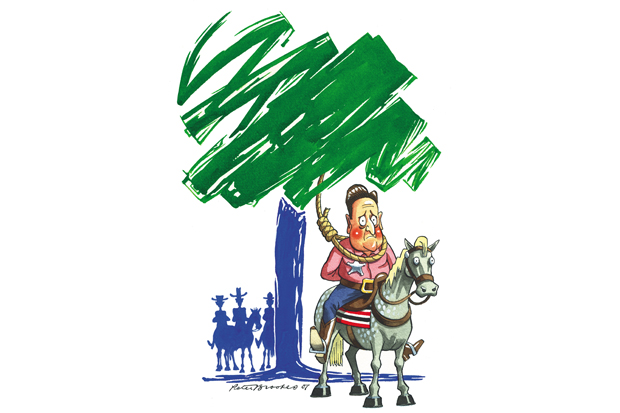
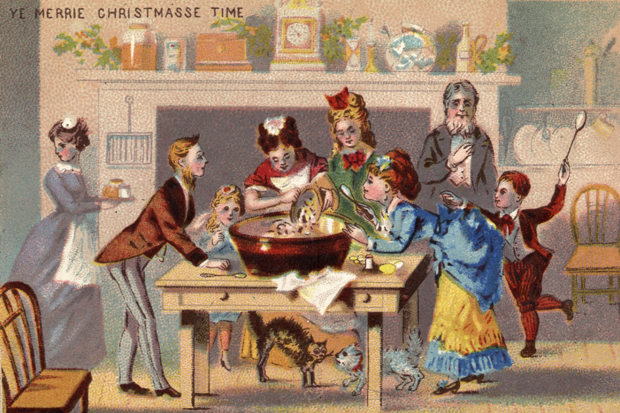
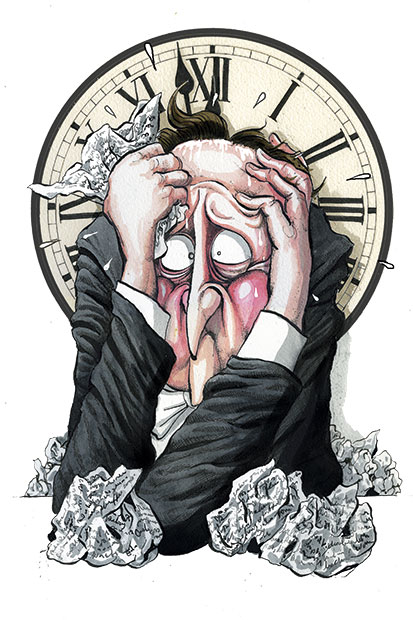
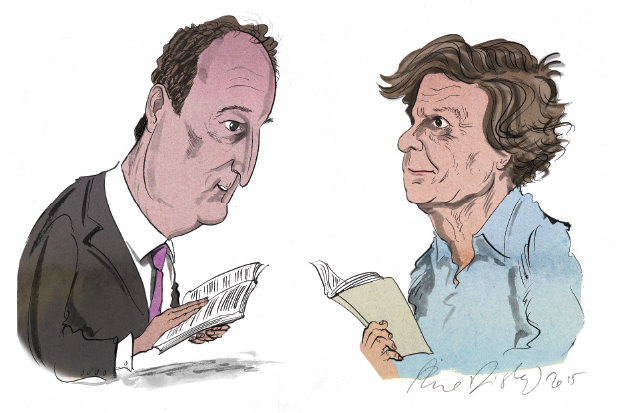
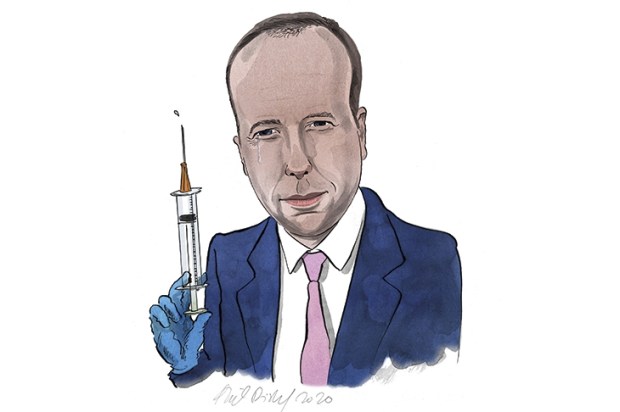
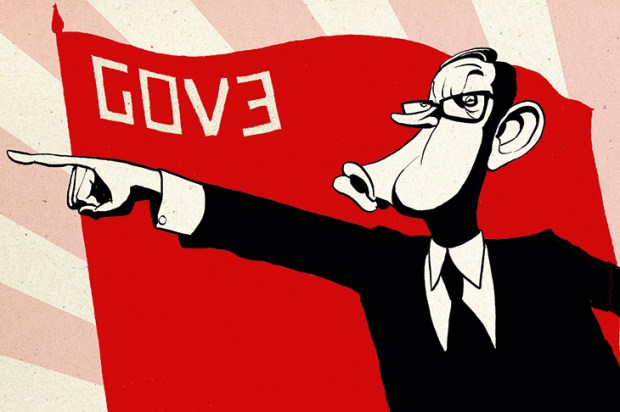
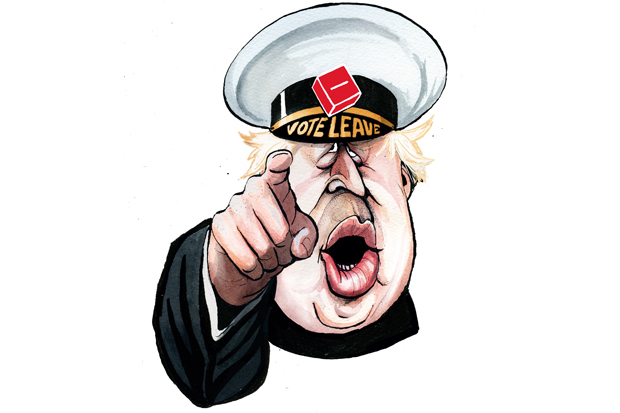






Comments
Don't miss out
Join the conversation with other Spectator Australia readers. Subscribe to leave a comment.
SUBSCRIBEAlready a subscriber? Log in